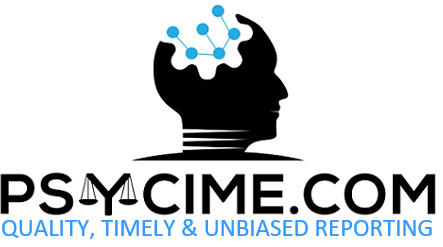LAT Hearing and PsycIME — October 29, 2021
Tribunals Ontario Licence Appeal Tribunal Tribunaux décisionnels Ontario Tribunal...
Read More
Tribunals Ontario Licence Appeal Tribunal Tribunaux décisionnels Ontario Tribunal...
Read MoreTribunals Ontario Licence Appeal Tribunal Tribunaux décisionnels Ontario...
Read MoreTribunals Ontario Licence Appeal Tribunal Tribunaux décisionnels Ontario Tribunal...
Read MoreThe stigma surrounding mental health is evident...
Read MoreGenerally speaking, work is crucial to an...
Read MoreWhen assessing for Catastrophic Impairment, for accidents...
Read MoreMinor Injury Guideline (MIG) – This is...
Read MoreSection 44 assessments are paid for and...
Read MoreTop 5 tips to have a successful...
Read MoreHow Are Psychiatrists and Psychologists Similar? Psychiatrists...
Read MoreThe purpose of this test is to establish if one has suffered a permanent serious impairment of an important physical, mental or psychological function.
According to the legislation, for an impairment to be considered serious, the impairment must:
1. Substantially interfere with the person’s ability to continue his or her regular or usual employment, despite reasonable efforts to accommodate the person’s impairment and the person’s reasonable efforts to use the accommodation to allow the person to continue employment (for individuals who are employed).
2. Substantially interfere with the person’s ability to continue training for a career in a field in which the person was being trained before the incident, despite reasonable efforts to accommodate the person’s impairment and the person’s reasonable efforts to use the accommodation to allow the person to continue his or her career training (for individuals who were in school or other forms of career training).
3. Substantially interfere with most of the usual activities of daily living, considering the person’s age (for all individuals—employed, in school or unemployed).
In order for an impaired function to be considered an important one under the recent amendments, the function must:
1. Be necessary to perform the activities that are essential tasks of the person’s regular or usual employment, taking into account reasonable efforts to accommodate the person’s impairment and the person’s reasonable efforts to use the accommodation to allow the person to continue employment.
2. Be necessary to perform the activities that are essential tasks of the person’s training for a career in a field in which the person was being trained before the incident, taking into account reasonable efforts to accommodate the person’s impairment and the person’s reasonable efforts to use the accommodation to allow the person to continue his or her career training.
3. Be necessary for the person to provide for his or her own care or well-being.
4. Be important to the usual activities of daily living, considering the person’s age.
Finally, for an impairment to be considered permanent under the legislation, the definition requires that the impairment must:
1. Have been continuous since the incident and must, based on medical evidence and subject to the person reasonably participating in the recommended treatment of the impairment, be expected not to substantially improve.
2. Continue to meet the criteria in paragraph 1 [see the requirement of serious above]
3. Be of a nature that is expected to continue without substantial improvement when sustained by persons in similar circumstances.
The purpose of this assessment is to determine whether the insured continues to suffer a psychiatric an impairment that precludes them from returning to their pre-loss vocation.
In a famous Supreme Court of Canada ruling, Chief Justice Laskin explained that total disability should not be taken literally.
He stated: “The test of total disability is satisfied when the circumstances are such that a reasonable [person] would recognize that he or she should not engage in certain activity even though he or she literally is not physically unable to do so. In other words, total disability does not mean an absolute physical inability to transact any kind of business pertaining to one’s occupation, but rather that there is a total disability if the insured’s injuries are such that common care and prudence require him or her to desist from his or her business or occupation in order to effectuate a cure; hence, if the condition of the insured is such that in order to effect a cure or prolongation of life, common care, and prudence will require that he or she cease all work, he or she is totally disabled within the meaning of health or accident insurance policies.”